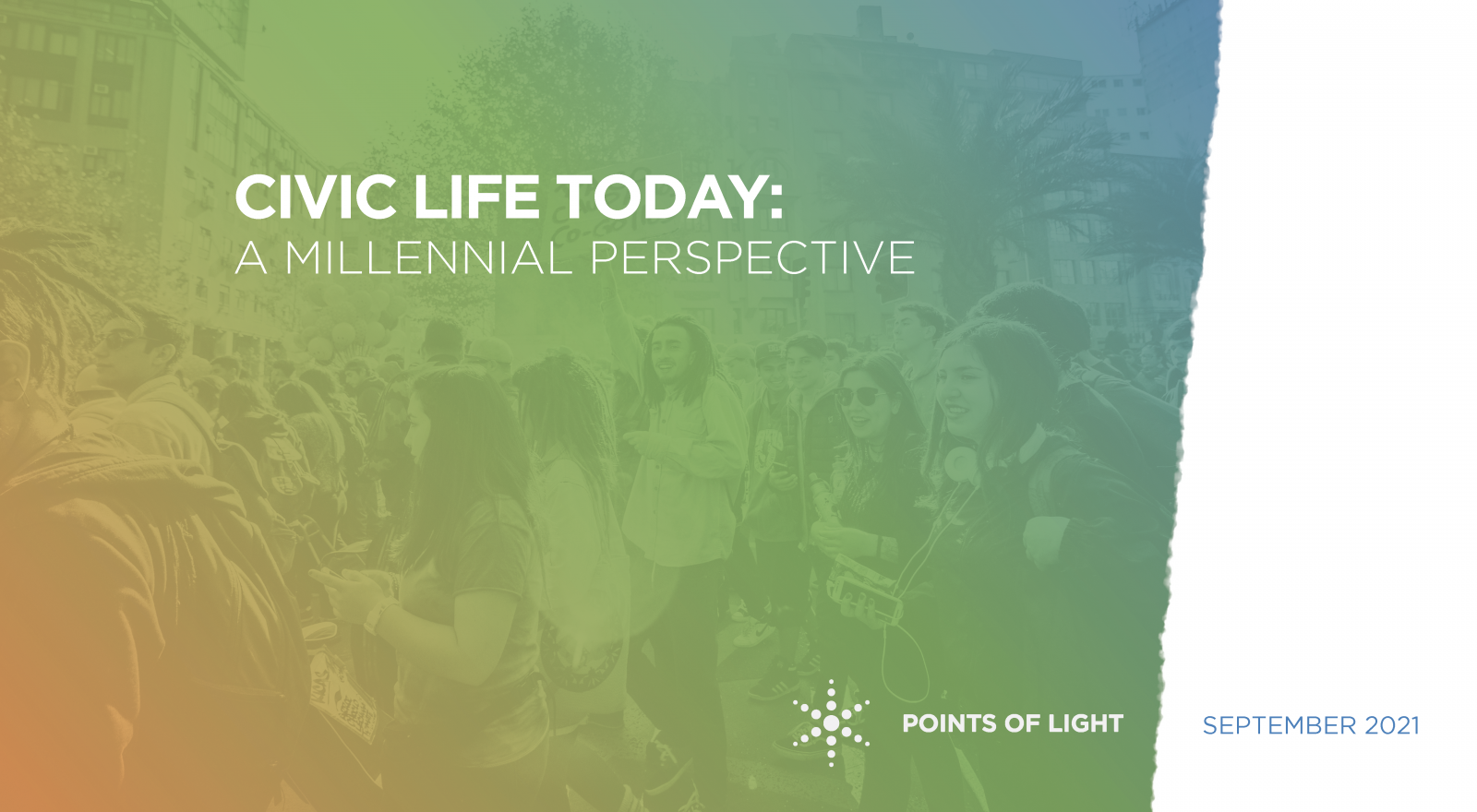Millennials Have Spoken. Here’s Why CSR Professionals Need to Listen.

Over the past two years, with nearly every sphere of society upended by the COVID-19 pandemic, navigating toward a new normal at work and in communities seems almost impossible. But signals from Gen Z and millennials point to a workforce powered by their voices, their involvement, and their desire to tackle society’s toughest problems.
America’s millennials and their activist Gen Z peers are poised to reshape society to a greater degree than any generation since the Greatest Generation. As two million baby boomers retire each year, millennials are projected to constitute the majority of the workforce by 2025 while the number of Gen Z employees in the U.S. workforce is set to triple over the next decade. These younger generations are savvy employees and consumers who are checking up on businesses and demanding more social value for their time and money than ever before.
Points of Light, in partnership with research and design firm INFLUENCE|SG, released their latest study on civic engagement among the millennial generation to gather some crucial data points to complement their 2020 study of American civic engagement amid a global pandemic, which studied the attitudes, motivations and barriers to civic engagement with a special section dedicated to Gen Z.
While it’s impossible to define any group of 72 million Americans, the data reinforce the need for business to evolve or get left behind.
One of the key insights we found was that millennials view social issues through a very personal lens. Whereas volunteering used to be seen primarily as helping other people, this generation sees themselves as among those affected. Businesses need to be social change leaders not just because it’s the right thing to do, but because their millennial workforce is counting on them for support.
And their own civic engagement is one of the primary ways they’re taking action to change their circumstances. Almost 50% of millennials believe more in civic engagement now than before the pandemic, 69% are more likely to volunteer, and 85% think people should help their community and the world.

Businesses that foster a culture of civic engagement know that it’s not just about staying current. It really does affect the tangibles — like recruitment, retention, productivity, and even the bottom-line.
From a consumer perspective, millennials believe companies should be actively involved in social issues, and two-thirds visit corporate websites at least somewhat often to learn about their efforts when making purchase decisions. Black American males, especially, think companies should meet with consumers about the effects of their products and services.
Here again, we see that being a social change leader is not only good for the planet and its people, but for the companies and their profits. Millennials are the largest generation on the earth right now. Chances are that they currently are, or will soon be, interacting with your products and services.
Corporate social responsibility is a symbiotic relationship between brand and consumer, between employer and employee, between big business and society as a whole. Companies have an opportunity to inhabit this space and drive change as we create our better post-COVID world.
